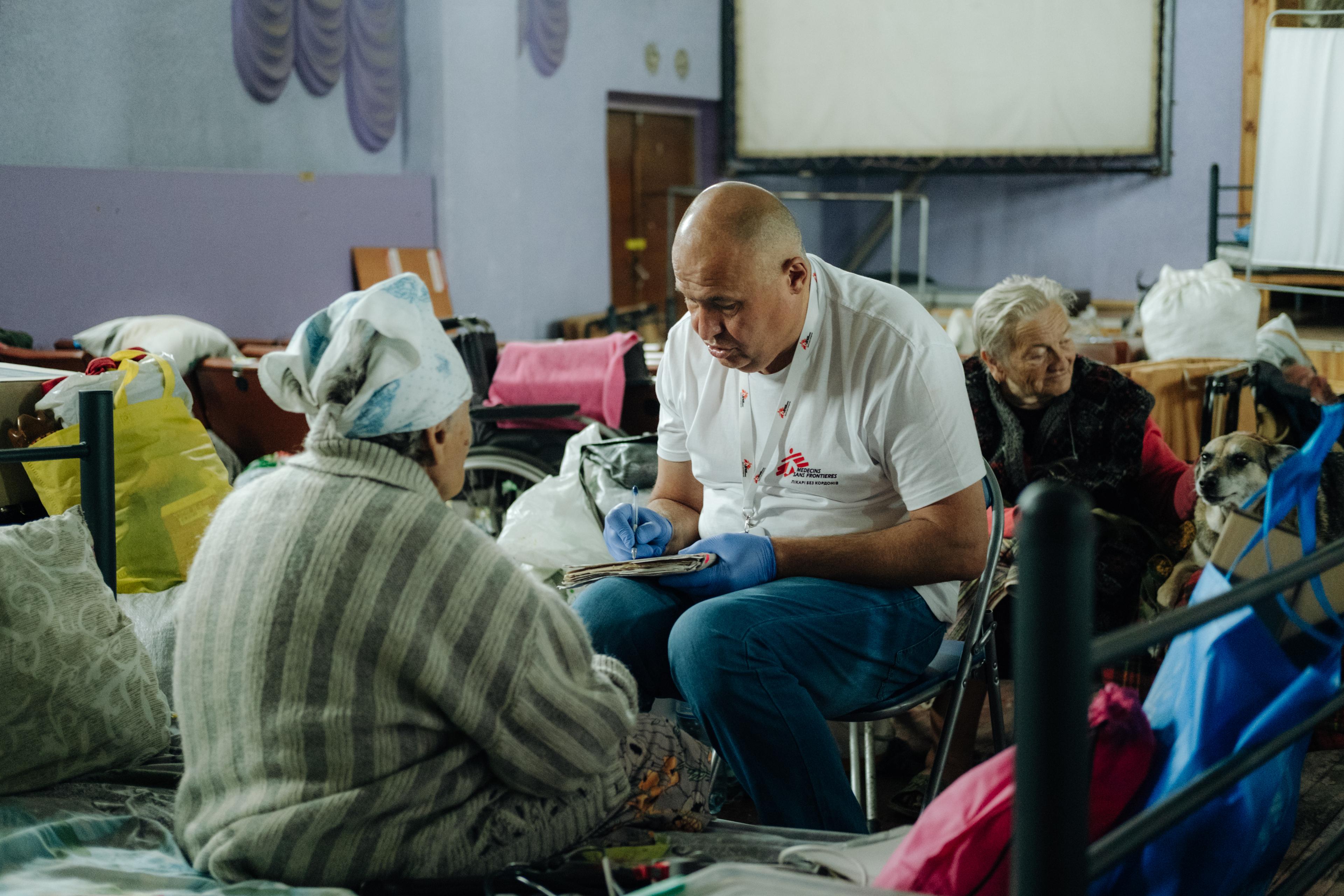
Ukraine
In 2024, as the international armed conflict in Ukraine showed no sign of abating, Médecins Sans Frontières (MSF) increased support for people affected by the violence, by filling gaps in care.
Read more in the 2024 International Activity ReportUkraine Emergency Response
Our activities since the beginning of the war
- Medical referrals and evacuation by MSF ambulances.
- Supporting the emergency care and intensive care unit as well as supporting the surgical capacity of hospitals near the frontlines in Donetsk and Kherson regions.
- Physiotherapy and post-surgery care, and psychological support for war-wounded and injured patients, as well as physiotherapy trainings for staff in rehabilitation wards at hospitals supported by MSF teams.
- Mobile clinics teams providing primary healthcare, mental health counselling and psychoeducation services, as well as sexual and reproductive healthcare, particularly in areas close to the frontlines.
- Medical donations, including medical kits, equipment and medicine to hospitals and medical facilities with shortages.
- Trainings about secondary healthcare, including mass casualty trainings, pain management trainings and mental health to healthcare staff.
Our activities in 2024 —
outpatient consultations
individual mental health consultations
surgical interventions
In 2024, MSF teams remained close to the frontline, delivering emergency medical treatment, while also expanding services in other regions to support long-term recovery, such as rehabilitation for trauma survivors, and mental health care.
As the war has evolved, we have adapted our response. In addition to providing essential trauma care in hospitals in Kherson, we ran mobile clinics and ambulance referrals in all regions along the frontline, which stretches for more than 1,000 kilometres.

Our mobile teams screened for tuberculosis and offered treatment for chronic diseases, such as hypertension, mainly to elderly and vulnerable patients, many of whom had resorted to living in basements or shelters to escape the shelling. Our ambulances frequently responded in the aftermath of airstrikes, referring wounded patients to nearby hospitals.
In a shelter run by local organisations in Zernove, Kharkiv region, we offered psychological care to people who had moved from Russia and Russian occupied regions of Ukraine. In Pavlohrad, our teams provided mental health and basic healthcare for people fleeing the encroaching fighting in Pokrovsk and Kurakhove, Donetsk region. However, in April, MSF’s office in Pokrovsk was destroyed by a missile. Five people were injured in the attack, including an MSF staff member.
We also increased our mental health activities in 2024. We focused on treating post-traumatic stress disorder at our dedicated centre in Vinnytsia, and established a professional and community network to deliver trauma care for displaced people. In 2024, we expanded our support to reach people who have endured prolonged exposure to traumatic experiences, helping them manage their symptoms.
In Cherkasy and Odesa, MSF’s rehabilitation services comprised physiotherapy, mental health care, and nursing support for people who have recently had trauma surgery, including amputations.
We continued to send professionals and medical supplies to hospitals near the frontline to provide training and resources for mass-casualty influxes.

